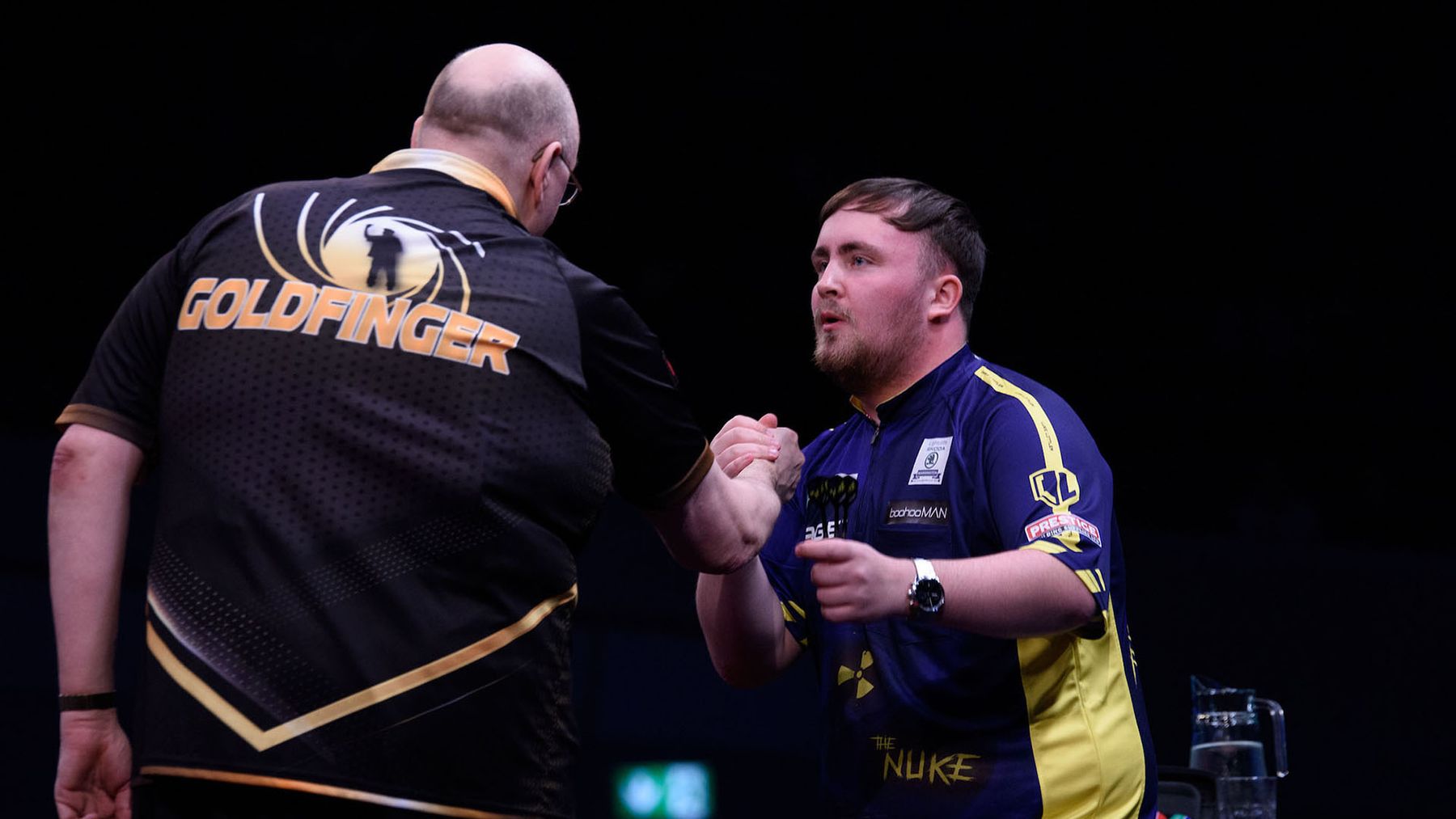
Luke Littler entered the European Championship as one of the favorites to claim his 10th Professional Darts Corporation (PDC) title this season, only to face an unexpected early exit in the first round against Andrew Gilding. While this result was disappointing for Littler, a young star in the darts world, some sections of the media seized on the loss in a way that seemed almost gleeful, casting it as an embarrassment. The *Daily Mail*, in particular, presented the outcome as though Littler had let down his fans or failed to live up to expectations—a framing that is both misleading and potentially harmful.
In Britain, the media has a longstanding tendency to elevate young sports stars to almost mythical status only to bring them down at the first sign of struggle. Littler, at just 17, represents one of the brightest young prospects in darts, yet the same media that lauded his meteoric rise is now pushing narratives that undermine his achievements. Considering Littler’s impressive year—marked by major victories and an enviable position in the PDC rankings—the media’s portrayal of his recent losses as a downturn in form is unfounded. Such sensationalist reporting disregards not only the full context of Littler’s season but also the nature of his recent losses, which have been against highly ranked and experienced players.
Over the course of 2024, Littler has achieved what few players his age can boast. His record includes two tournament wins just in the last quarter and an impressive showing at the World Series of Darts Finals, bringing his tally to nine PDC titles for the year. These accomplishments are often overshadowed by televised losses, yet they showcase a consistent trajectory of success and growth that stands out even in the competitive world of professional darts. In fact, Littler’s nine PDC titles place him in rare company; only legends like Phil Taylor, Michael van Gerwen, and Peter Wright have managed to achieve 10 PDC titles in a single season. For Littler to be on the cusp of joining these elite ranks in his debut season speaks volumes about his potential.
However, the broader media narrative seems intent on framing Littler as a “one-hit wonder” or a young talent on a decline. His early-round losses in recent majors are cited to support this narrative, though each of these defeats came against established champions: Michael van Gerwen at the World Matchplay and Rob Cross at the World Grand Prix, where Littler was playing with the additional challenge of a double-start format for the first time. Andrew Gilding, his latest opponent, is no slouch either. Far from being the “former butcher” as labeled by the *Daily Mail*, Gilding is a seasoned competitor, ranked 21st globally and a recent UK Open champion. Losing to a player of Gilding’s caliber in a best-of-11 format does not reflect poorly on Littler’s skill or mental strength.
Moreover, Littler has shown remarkable composure under pressure this year, a trait uncommon in many young players. Only last weekend, he achieved three averages over 110 in a tight European Tour semi-final match against Luke Humphries, further solidifying his status as one of darts’ most promising stars. His consistent performances have lifted him to world number 18, an impressive feat, especially for a player in their first PDC season. Comparatively, even the likes of Rob Cross, who famously won the World Championship in his rookie season, did not reach the top 16 by this stage in his career. Littler’s current ranking reflects his ability to perform consistently, even with some early exits at high-profile events.
The fact that the media is quick to critique Littler’s losses while overlooking his significant achievements speaks to a larger issue with how young talents are treated in sports journalism. Gary Anderson, a respected voice in darts, highlighted this very concern at last year’s World Championship, cautioning against the potentially damaging effects of premature hype and intense scrutiny. Littler’s three first-round exits are far from indicative of a struggling career, yet headlines like “Littler Loses AGAIN” paint an image of decline that is both inaccurate and unfair.
The truth is that every young player has a target on their back. Littler, with his rapid rise and undeniable talent, draws even more attention, not only from fans but also from competitors eager to prove themselves against him. It’s almost certain that opponents like Gilding prepare with extra intensity when facing him, knowing the stakes and the spotlight that accompany a match with one of darts’ hottest prospects. Losing with a strong average of 95 is by no means an indication of poor performance—on the contrary, it shows that Littler is competing at a consistently high level even when faced with setbacks.
The media’s approach to covering Littler’s losses as headline-grabbing events risks creating a distorted view of his career trajectory. This sensationalism might attract clicks, but it ultimately undermines Littler’s hard work and resilience, qualities essential to long-term success in professional sports. Instead of focusing on short-term setbacks, it’s worth celebrating Littler’s extraordinary progress, his resilience in the face of media scrutiny, and the fact that he’s achieved in one season what many players can only dream of over an entire career. Far from being on the decline, Luke Littler is a name we should expect to see lighting up the world of darts for years to come.
Leave a Reply